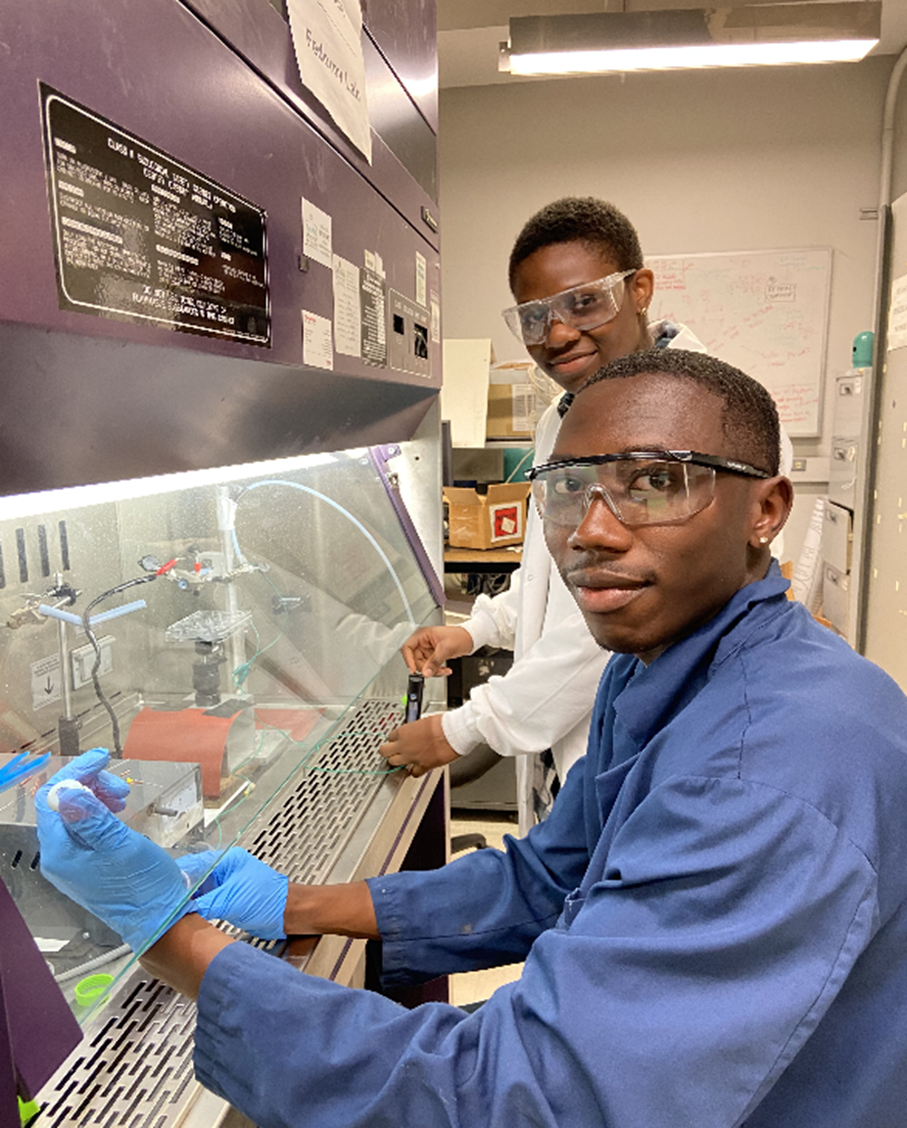Andrei Fedorov and Collaborators Awarded $4.81 Million to Develop New Instrumentation for Biomedical Research
Oct 10, 2024 —

Andrei Fedorov, Associate Chair for Graduate Studies, Rae S. and Frank H. Neely Chair, and professor in the George W. Woodruff School of Mechanical Engineering, has received two Research Project Grants (R01) from the National Institutes of Health (NIH).
The funding, a combined $4.81 million to be distributed over the next five years, will be used to develop new instrumentation for biomedical research.
Guided Intracellular Delivery using Precise Area Introduction and Transfection (PAINT)
The first project, supported by $1.87 million from the National Institute of General Medical Sciences (NIGMS), aims to develop a new method for highly localized, versatile, and efficient biochemical delivery for "direct-write" guided administration at single-cell to multi-cell resolution. PAINT permits the simple and quick production of heterogeneously modified samples, including in vitro cell and tissue cultures.
Modifying cells by introducing biomolecules has become a critical process for fundamental biomedical research and is gaining traction as a treatment approach. This project will provide a significant leap forward in the capability and utility of microinjection and other state-of-the-art delivery methods.
This novel approach to cell modification, invented in Fedorov’s lab, is primarily based on its versatility, ease of use, and rapidity. As PAINT modification of cells does not require direct contact, several steps of the cargo introduction process for micro-injection are eliminated, allowing for continuous, more straightforward cell modification.
This project is a collaboration with Professor Ravi Kane from the School of Chemical and Biomolecular Engineering and Professor Randolph Ashton from the University of Wisconsin.
Synergistic Advancements in MR Thermometry and Predictive Thermal Modeling Towards Improved Characterization of Human Brain Temperature
The second project, supported by $2.94 million from the National Institute of Neurological Disorders and Stroke, aims to develop non-invasive, repeatable, in vivo magnetic resonance (MR) brain thermometry and a novel, quantitative, hemodynamic biophysical model for interpreting MR images and predicting brain temperature.
"Brain thermoregulation is a poorly understood but critical modulator of neural activity and hemodynamics," said Fedorov. Though brain and body temperatures are highly correlated indicators of health, the way the body regulates them is distinct. Brain temperature fluctuations can contribute to ischemia-induced brain damage and mortality after traumatic brain injury.
The project will leverage the expertise in MR thermometry, thermal modeling, clinical neurology, and neuroradiology to facilitate the development of clinically viable methods for in vivo brain thermometry and temperature predictions, provide mechanistic insight into brain thermoregulation, and identify urgently needed biomarkers for injury and neuroprotection.
This interdisciplinary project is a long-term collaboration with Candace Fleischer, associate professor in the Department of Radiology at Emory University School of Medicine and assistant professor in the Wallace H. Coulter Department of Biomedical Engineering at Emory University and Georgia Tech.

Malik McRae (front) and Ire Adaramola (back) are conducting experiments with the early prototype of the PAINT device for "direct-write" guided drug delivery to biological cells. McRae, a Morehouse College student and a Petit Scholar in Bioengineering in the Fedorov laboratory, won the Marshall Fellowship for his research and is currently pursuing his MD/Ph.D. at the Johns Hopkins School of Medicine. Adaramola is completing the first year of her master’s degree in mechanical engineering at the Woodruff School.
By Chloe Arrington




